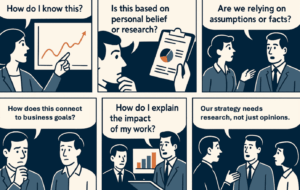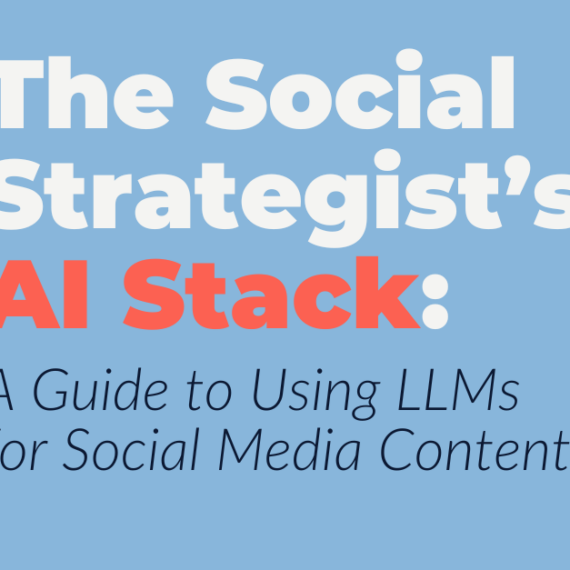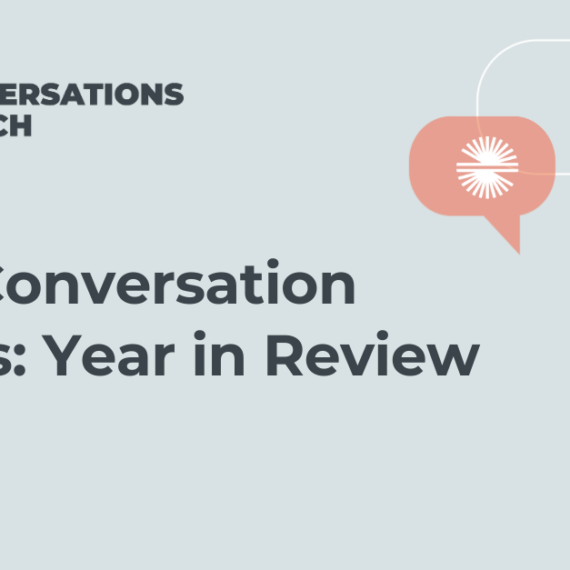By Taylor Voges, PhD and Amber Daugherty, MCM
Who is the one of the most trusted technology companies in 2024? Take a moment. What comes to mind?
You might name Apple, Google, or Microsoft. Or Meta. Amazon. Yet one independent study, jointly conducted by Newsweek and Statista, pointed elsewhere: Dutch semiconductor company ASML was ranked as the most trusted technology hardware company while Samsung SDS was ranked the most trusted software and telecommunications company. It is okay to question the “answer;” investigating the approach, method taken and choices made is a key. In fact, research is all about choices, starting with the question asked and ending with the framing of the answer.
For this, the point isn’t which answer is “right.” The point is that instinct and reality rarely align — and even reality isn’t simple. Different studies produce different answers, depending on the research question, who was surveyed, how questions were framed, and what “trust” meant in context. That’s why reputation, reliability and validity in research matter: it’s not enough to say there’s a survey. The method behind the data shapes the truth it claims to tell.
Market Intelligence exists to cut through both the bias of instinct and the noise of competing studies, guiding leaders to navigate methods and context with confidence.
Belief vs. Knowledge
Belief feels persuasive. We trust a brand because of personal experience, or assume a campaign worked because it generated headlines or likes. Belief thrives on perception, anecdotes, and bias. Knowledge requires discipline. It starts with clear questions, relies on systematic methods, and tests assumptions. Knowledge moves us from the “world of likely” into the “world of known.” This matters because decisions built only on belief rest on fragile ground. Knowledge creates strategy that withstands scrutiny. When presenting to the marketing and communications team, the CEO, wouldn’t you rather stand firm on evidence than uncertain when pressed on your gut instinct?
Confidence and Credibility
Decisions without evidence don’t just create risk for the business — they create risk for the people making them. Without data, every presentation, recommendation, or plan rests on fragile ground. Leaders can feel that fragility as uncertainty, or worse, as imposter syndrome: standing in front of a board, a client, or a team without proof to back up claims.
Intelligence replaces that fragility with confidence. It equips leaders to show up not with “we think” but with “we know.” And that difference matters when expectations don’t match reality. Ask yourself:
- How often do I rely on assumptions rather than evidence?
- How do I explain the impact of my work?
- If my audience turned out to be different than I thought, how would I explain not doing the pre-work?
- When was the last time I felt nervous about being challenged — and would data have changed that?
- What can I do to explain the intelligence imperative for my work?
Sure, you may instinctually know your audience believes X. But what if it turns out they believe Y? How do you justify not having done the work to know that? Evidence protects not just the strategy, but the strategist.
Market Intelligence as a Frontline Discipline
Too often, research and measurement sit on the margins — a survey run at the beginning of a project or a metrics report attached at the end. That narrow view treats intelligence as bookkeeping rather than strategy. True market intelligence belongs on the front line. Research and analytics uncover audiences, competitors, and signals before decisions are made. Measurement and evaluation show whether communications reached the right people, changed perceptions, or shifted behavior. Together, they turn information into strategy and confidence.
What Tools Can Do — and What Intelligence Must Do
Dashboards, surveys, listening platforms, and now AI promise instant answers. They accelerate analysis, surface patterns, and package data neatly. But tools, no matter how advanced, cannot replace intelligence. They generate outputs; they do not create understanding. AI sharpens this point. The speed and scale impress, but without judgment and context it risks multiplying noise instead of clarifying truth. Like every other tool, its value depends on the questions we ask and the discipline we bring to interpreting results.

Image created via ChatGPT based on guidance from the authors.
Why This Matters
Markets shift quickly. Brands rise and fall on perception. Campaigns succeed or fail not on activity, but on whether they create real change. In this environment, instinct alone is never enough. Asking how do you know? disciplines decision-making. It challenges assumptions, tests the quality of data, and separates what seems true from what proves true. All of this rallies around the bigger goal: helping you achieve what you set out to achieve. The lesson is simple: belief may inspire, but knowledge endures. Market intelligence bridges the two, ensuring strategy rests not on assumption but on evidence.
Every meaningful decision begins with the same question: How do you know? Asking it — and insisting on an answer grounded in sound evidence — is what turns opinion into intelligence, and activity into impact.






